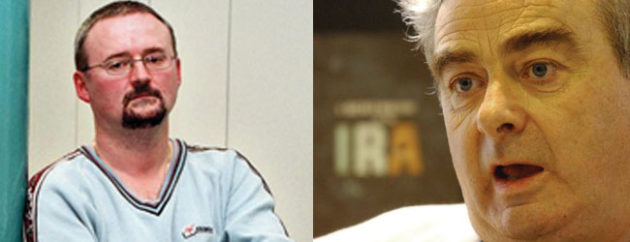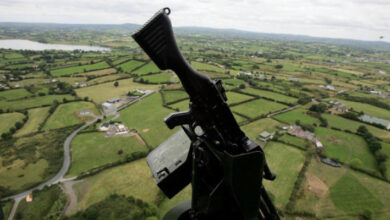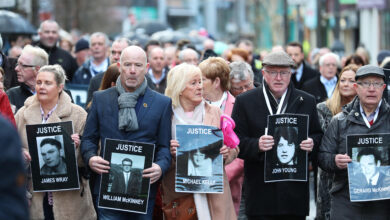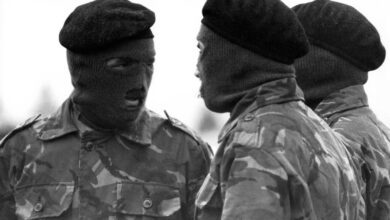Il Boston College resiste alle richieste della PSNI
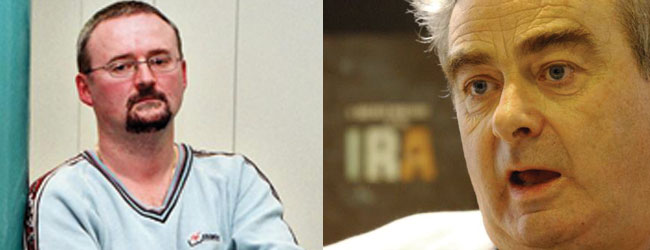
Fishing in BC’s archives
by Ed Moloney and Anthony McIntyre
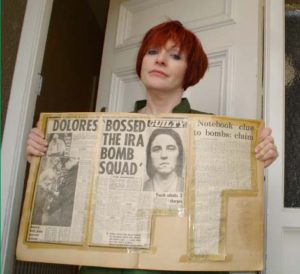 BOSTON COLLEGE is currently resisting efforts by the security forces in Northern Ireland to force it to hand over part of its oral history archive on the Irish Republican Army, and as well it should. This attempt to violate the college’s files could have disastrous consequences for oral historians and their close cousins in the media. It also could be immensely destructive to the peace process in Northern Ireland.
BOSTON COLLEGE is currently resisting efforts by the security forces in Northern Ireland to force it to hand over part of its oral history archive on the Irish Republican Army, and as well it should. This attempt to violate the college’s files could have disastrous consequences for oral historians and their close cousins in the media. It also could be immensely destructive to the peace process in Northern Ireland.
The subpoenas that have been served are based on an unproven assertion: that an interview given to the college by a former Irish Republican Army activist, Dolours Price, could shed light on a 40-year-old murder and should be surrendered.
The truth, however, is that the Police Service of Northern Ireland (PSNI), on whose behalf US Attorney Carmen M. Ortiz is acting, does not know what Dolours Price told Boston College’s interviewers. Neither does Ortiz.
They do not know because the legal basis for the subpoenas is deeply flawed, the result of either rank incompetence or sleight of hand. The authorities have justified the action by claiming that an interview with Price published in a Belfast newspaper in February 2010 about the murder was derived from her Boston College interview, when in fact it was based on a separate taped interview given directly to the newspaper. Price’s interviews have never been released by Boston College and never would be – because a guarantee of confidentiality was given to every interviewee.
What is happening is essentially an unwarranted fishing expedition into the college archives. It has been suggested that not to comply with the subpoenas could anger the British government, which might then raise obstacles in America’s fight against terrorism. Yet the subpoenas are not the work of the British government per se; its minister in Northern Ireland has expressed embarrassment at the move. Rather, they originate from a small number of PSNI detectives who can hardly be surprised if their motives are questioned. After all, the murder at the center of this case was largely ignored by the police for the best part of 40 years, and even when Price’s newspaper interview was published in 2010 they did nothing.
A whole year passed before action was taken. When the police service did move, it was within weeks of Sinn Fein’s remarkable electoral comeback in the general election in the Republic of Ireland. In that election, Gerry Adams was elected to the Dublin parliament and is well-placed to lead his party into government next time. Only then did the PSNI crank into action. Was that just a coincidence?
Irredentist elements opposed to the Good Friday Agreement in Northern Ireland have long seen this case as an opportunity to bring down Adams for his alleged role in the 40-year-old murder – and, perhaps, to bring down aspects of the peace process they abhor. The stability of the power-sharing government in Belfast could conceivably be threatened by this case. The United States played a huge role in bringing about peace in Northern Ireland; wouldn’t it be ironic if now it played a part in undoing it?
The police and the British authorities in Northern Ireland do not come to this case with clean hands. Their track record in covering up official involvement in some of the most shocking murders of the Irish Troubles is well known, and they cannot be allowed to present themselves in America as an unblemished force attempting to get to the bottom of an awful killing.
Since this case could affect the stability of the peace process in Ireland, it is worth reflecting on recent remarks made in the wake of these subpoenas by the Independent International Commission on Decommissioning, a body set up at the suggestion of the Clinton White House to facilitate the disarming of the IRA: Peacemaking, the commission said, “means that however reprehensible some acts are that were committed in the past, at some point a line needs to be drawn under them – never to forget, but to be able to move on.’’
